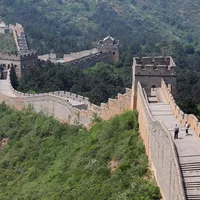94 怎样 辨 方向
|déterminer|
how|determine|direction
|方向を見分ける|
94 How to tell the direction
94 Cómo saber qué camino tomar
94 Come capire da che parte andare
94 道を見分ける方法
94 Как определить, в какую сторону идти
怎样 辨 方向
how to identify direction|determine|direction
Wie man die Richtung sagt
How to identify directions
¿Cómo sabe adónde ir?
方向を知る方法
以前 , 我 只 知道 地图 上 的 方向 , 地图 上 的 方向 是 上北 、 下南 、 左西 、 右东 。
|||||||||||||nord|vers le sud|gauche ouest|est à l'est
in the past||||map|||directions|map|on||directions||north|south|west|east
||||地図|||||||||北上|南|左西 -> 左が西|右東
Vorher kannte ich nur die Richtungen auf der Karte, die Richtungen auf der Karte waren Nord, Süd, Links-West und Rechts-Ost.
Previously, I only knew the direction on the map. The directions on the map were Upper North, Lower South, Left West, and Right East.
Antes, sólo conocía las direcciones del mapa, que eran arriba al norte, abajo al sur, izquierda al oeste y derecha al este.
Avant, je ne savais que les directions sur une carte, les directions sur la carte sont le nord en haut, le sud en bas, l'ouest à gauche et l'est à droite.
昔は地図上の方角しか知らなかった。 地図上の方角は北上、南下、左西、右東だった。
比如 : 在 中国 地图 上 , 辽宁 在 中国 的 东部 , 广东 在 中国 的 南部 , 青海 在 中国 的 西部 , 内蒙古 在 中国 的 北部 。
|||||||||||||||Qinghai|||||Mongolie intérieure||||
for example||China|map||Liaoning||||eastern|Guangdong||||southern part|Qinghai||||the west|Inner Mongolia||China||the northern part
|||||遼寧省||||||||||青海||||西部 -> 西部|内モンゴル||||北部: 北部
Auf der Karte von China befindet sich beispielsweise Liaoning im Osten Chinas, Guangdong im Süden Chinas, Qinghai im Westen Chinas und die Innere Mongolei im Norden Chinas.
For example: On the map of China, Liaoning is in the east of China, Guangdong is in the south of China, Qinghai is in the west of China, and Inner Mongolia is in the north of China.
Par exemple : sur la carte de la Chine, le Liaoning est à l'est de la Chine, le Guangdong est au sud de la Chine, le Qinghai est à l'ouest de la Chine, et la Mongolie intérieure est au nord de la Chine.
例えば、中国の地図では、遼寧省は中国の東、広東省は中国の南、青海省は中国の西、内モンゴルは中国の北に位置する。
在 实际 生活 中 , 我 不 知道 怎样 辨别方向 , 比如 : 要是 想 去 某个 地方 , 在 地图 上 知道 应该 往西 走 , 在 实际 生活 中 不 知道 哪边 是 西 就 到 不了 目的地 。
||||||||||||||||||||||||||||quel côté||||||
|reality|life|in||||how to|determine the direction|for example|if||to go|a certain|place|in|map||know|should|west|go||reality|life||||which way||west|then|get|can't get to|destination
|実際の|||||||方向を見分ける|||||ある|||||||西へ||||||||どちら||||||
Im wirklichen Leben weiß ich nicht, wie ich die Richtung bestimmen soll. Wenn ich zum Beispiel an einen bestimmten Ort gehen möchte, weiß ich, dass ich auf der Karte nach Westen gehen sollte. Im wirklichen Leben komme ich nicht an die Ziel, ohne zu wissen, welche Seite westlich ist.
In real life, I don't know how to distinguish directions. For example: If you want to go somewhere, you know that you should go west on the map. In real life, you don't know which side is west and can't reach the destination.
En la vida real, no sé identificar la dirección, por ejemplo, si quiero ir a un lugar determinado, sé en el mapa que debo ir hacia el oeste, pero en la vida real, si no sé qué camino es el oeste, no podré llegar a mi destino.
Dans la vie réelle, je ne sais pas comment distinguer les directions, par exemple : si je veux aller quelque part, et que je sais sur la carte que je devrais aller vers l'ouest, dans la vie réelle, si je ne sais pas où est l'ouest, je ne pourrai pas atteindre ma destination.
例えば、ある場所に行きたい場合、地図上では西に進めばいいとわかっていても、実際の生活では、西がどちらかわからなければ目的地にたどり着けない。
后来 , 爸爸 告诉 我 怎么 辨认 方向 。
Later||told||how|identify|direction
|||||方向を見分ける|
Später sagte mir mein Vater, wie ich die Richtung erkennen sollte.
Later, Dad told me how to identify the direction.
Plus tard, papa m'a dit comment reconnaître les directions.
その後、父は私に道を見つける方法を教えてくれた。
爸爸 说 : 太阳 升起 、 月亮 落下 的 方向 是 东 ; 太阳 落下 、 月亮 出来 的 方向 是 西 ; 中午 太阳 在 正南方 ; 晴朗 的 夜晚 , 北斗星 指 的 方向 就是 北 。
||||||||||||||||||||||clair|||la Grande Ourse|||||
||the sun|rises|the moon|fall||direction||East|the sun|setting|the Moon|comes out||west|||noon|the sun||the due south|clear and sunny||night|the Big Dipper|points to||north|is|north
|||昇る|月|沈む||||東||||||||||||真南|晴れた||夜間|北極星|||||北
Papa sagte: Die Richtung, in der die Sonne aufgeht und der Mond untergeht, ist im Osten; die Richtung, in der die Sonne untergeht und der Mond herauskommt, ist im Westen; die Sonne steht mittags gerade im Süden; in einer klaren Nacht ist die Richtung des Großen Wagens Norden.
Dad said: the direction where the sun rises and the moon sets is east; the direction where the sun sets and the moon rises is west; at noon, the sun is in the true south; on a clear night, the direction indicated by the Big Dipper is north.
Papá dijo: "La dirección en la que sale el sol y se pone la luna es este; la dirección en la que se pone el sol y sale la luna es oeste; el sol está directamente al sur al mediodía; y la dirección en la que apunta la Osa Mayor en una noche clara es norte.
Papa a dit : le soleil se lève à l'est et la lune se couche à l'ouest ; à midi, le soleil est au sud ; par une nuit claire, la direction indiquée par la Grande Ourse est le nord.
太陽が昇って月が沈む方角は東、太陽が沈んで月が出る方角は西、正午の太陽は真南、晴れた夜に北斗七星が指す方角は北だ。
在 爸爸 的 帮助 下 , 我 学会 了 辨认 方向 。
|||help|with the help of||learned to identify||recognize|direction
With Dad's help, I learned to recognize directions.
Con la ayuda de mi padre, aprendí a saber adónde ir.
Avec l'aide de papa, j'ai appris à reconnaître les directions.
父の助けを借りて、私はどこに行けばいいかを学んだ。
在 外出 时 , 不用 别人 帮助 , 我 也 能 分辨 出 正确 的 方向 来 !
|out|when|no need|others|help||||distinguish|go out|the right direction||direction|
|||||||||見分ける|||||
Beim Ausgehen kann ich ohne fremde Hilfe die richtige Richtung sagen!
When going out, I can distinguish the correct direction without anyone's help!
Cuando salgo, puedo saber la dirección correcta sin ayuda de los demás.
外に出れば、他人の助けがなくても正しい方向がわかる!

